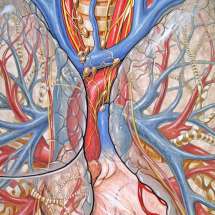Earth Systems
What You'll Study
The Earth Systems Program is an interdisciplinary environmental science major. Students learn about and independently investigate complex environmental problems caused by human activities in interaction with natural changes in the Earth system. Earth Systems majors become skilled in those areas of science, economics, and policy needed to tackle the globe's most pressing environmental problems, becoming part of a generation of scientists, professionals, and citizens who approach and solve problems in a systematic, interdisciplinary way.
For students to be effective contributors to solutions for such problems, their training and understanding must be both broad and deep. To this end, Earth Systems students take courses in the fundamentals of biology, calculus, chemistry, geology, and physics, as well as economics, policy, and statistics. After completing breadth training, they concentrate on advanced work in one of six focus areas: biosphere, energy, environmental economics and policy, land systems, sustainable food and agriculture, or oceanography. Earth Systems students also complete a 9-unit (270-hour) internship. The internship provides a hands-on academic experience working on a supervised field, laboratory, government, or private sector project.
Degrees Offered:
BS
Honors
Coterm
Related Majors

Aeronautics and Astronautics
BSMinorCoterm
Aeronautics and Astronautics
Provides you with the principles and techniques necessary for success and leadership in the conception, design, implementation, and operation of aerospace and related engineering systems.

Engineering Physics
BSHonors
Engineering Physics
The Engineering Physics program is designed for students who have an interest in and an aptitude for both engineering and physics. Students begin with a year of mathematics and calculus-based physics, and then proceed to depth courses in physics and engineering, as well as elective courses in a selected specialty area (Aerospace Physics, Biophysics, Computational Science, Electromechanical System Design, Energy Systems, Materials Science, Photonics, or Renewable Energy).

Human Biology
BAMinorHonors
Human Biology
Offers an interdisciplinary approach to understanding human beings from biological, behavioral, social, and cultural perspectives.
- 1 of 2
- >
What if I Studied...?

Symbolic Systems
BSCoterm
Symbolic Systems
An interdisciplinary program focusing on the relationship between natural and artificial systems that represent, process, and act on information.
Questions, Comments, or Concerns? Learn more about the Majors site.




